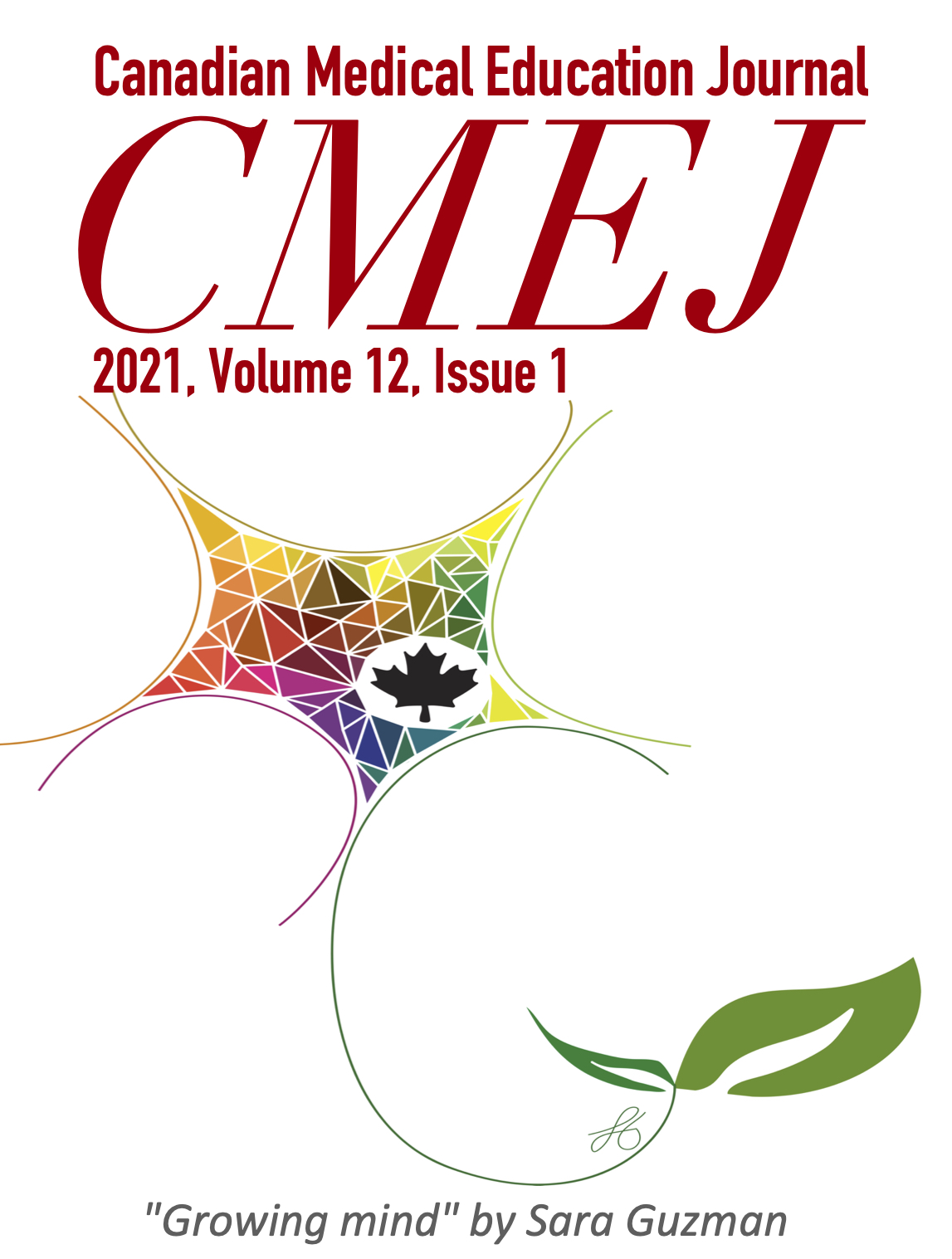Improving the LGBTQ2S+ cultural competency of healthcare trainees: advancing health professional education.
DOI:
https://doi.org/10.36834/cmej.67870Abstract
Background: Lesbian, Gay, Bisexual, Trans, Queer, and Two-spirit (LGBTQ2S+) populations experience worse health outcomes compared to age-matched heterosexual and cisgender peers. Health professionals’ deficient knowledge and negative attitudes can contribute to these inequities. Healthcare trainees report insufficient LGBTQS2+ cultural competence training.
Methods: In this prospective, mixed-methods pre-post design, Atlantic Canadian health students were tested on knowledge, attitudes and self-reported behaviours towards LGBTQ2S+ populations in healthcare settings. Assessment included psychometric measurements and clinical cases involving normative and non-normative fictional patients. Participants were randomised to intervention or control groups. The intervention consisted of three training sessions lead by LGBTQ2S+ experts and elders from the community. The control group continued with usual training. Full assessment was repeated after training. We also held focus group discussions with students and faculty.
Results: The intervention group significantly improved attitudes toward and knowledge of LGBTQ2S+ populations and changed relevant aspects of their performance in the simulated clinical situations. Focus groups identified key gaps in current local training.
Conclusions: Integrating specific training related to LGBTQ2S+ health within health professions programs is an important step toward improving these populations’ accessibility to a competent, exhaustive and nurturing healthcare. Additional research on innovative means to expand and broaden the scope of our training is warranted.
Downloads
Published
Issue
Section
License
Submission of an original manuscript to the Canadian Medical Education Journal will be taken to mean that it represents original work not previously published, that it is not being considered elsewhere for publication. If accepted for publication, it will be published online and it will not be published elsewhere in the same form, for commercial purposes, in any language, without the consent of the publisher.
Authors who publish in the Canadian Medical Education Journal agree to release their articles under the Creative Commons Attribution-Noncommercial-No Derivative Works 4.0 Canada Licence. This licence allows anyone to copy and distribute the article for non-commercial purposes provided that appropriate attribution is given. For details of the rights an author grants users of their work, please see the licence summary and the full licence.











